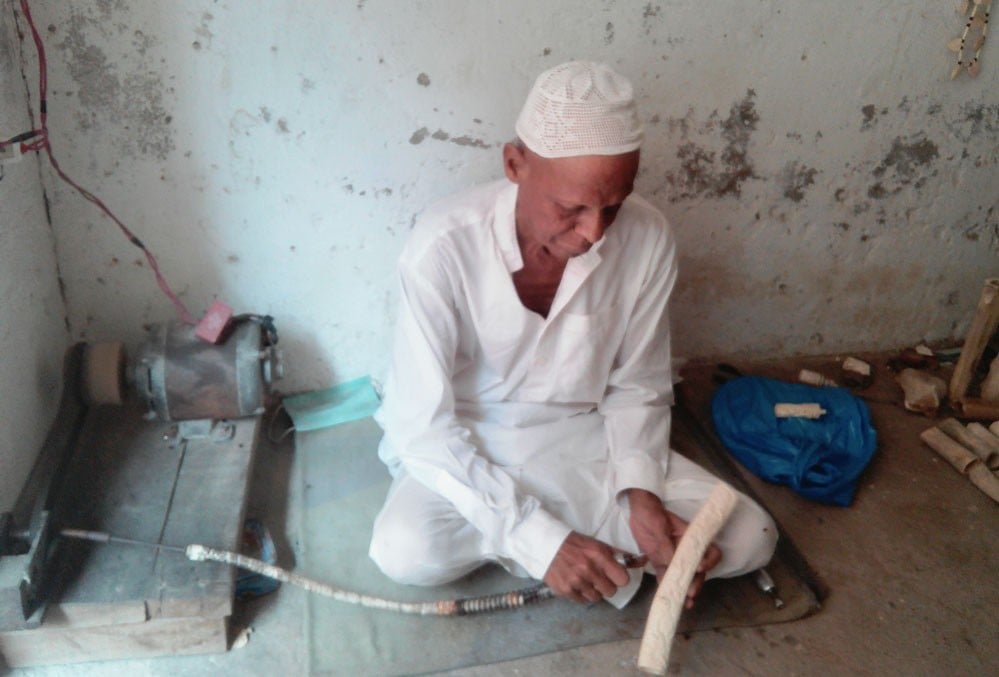
The jewellery pieces Muhammad Arshad makes from camel bones might have few takers today, but this doesn’t mean he’d give it up

For a man in his mid-sixties, Muhammad Arshad appears quite frail and dejected. It’s due to a bad phase in life that he has been experiencing ever since the work he is skilled at became redundant.
He makes decorative pieces, jewellery items, and rosaries etc from camel bones. His work station is a modest little space in a dingy lane in Dharampura; he’s been working from there since 1972. Back in the day, ivory items were in huge demand. Later, the trade was banned, and workers like him had to rely on camel bones to make decoration pieces and the like.
As he waits rather hopelessly for customers, he isn’t willing to call it a day. This is the only profession he has ever known, through generations: his grandfather was the first maestro in the business, based in Jagraon, a small village in Ludhiana, before Partition.
Arshad says that the prices of the items he makes ranges from hundreds to thousands of rupees, depending upon the size and the labour involved. "There are very few people associated with this [profession] in Pakistan, and most of them are in Karachi," he tells TNS. "In Lahore, I am perhaps the only artisan left."
There was a time when he had a few assistants working for him but not anymore. The reason he gives is that he "wasn’t good at marketing my creations, so I had to rely on the middlemen who wouldn’t pay me my dues regularly. Consequently, I was not in a position to pay my coworkers, and was forced to downsize."
He reveals that he visits slaughterhouses to fetch the required bones which cost him Rs1,000 per piece. His work tools are the smallish cutters and other things. He says he prefers camel bones because the bones of other animals such as cow are not too useful. Some of his recent creations are Taj Mahal, mosques, a chessboard, animals, and statues. He sold them at a high price. But the clients are hard to come by now. Some of the stuff he made was showcased at various exhibitions in Italy and Spain, by his clients. He was also offered by a friend in Spain to set up shop there but he declined it. "I didn’t go there then but now I think I should have availed the offer," he says, rather ruefully.
Arshad believes that if the government supports him by allowing him to display his items at different exhibitions on subsidised rates, it can surely be beneficial to people like him.
He also criticises the government for its apathy towards people like him, "With some help from the state, I think I’d be able to sell the items directly to my foreign clients and become financially stable. Until then, I’ll just be making fewer items which I can sell to my local clients who I trust."